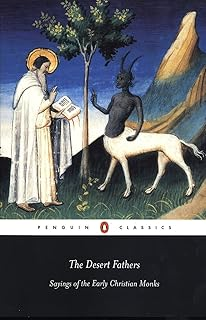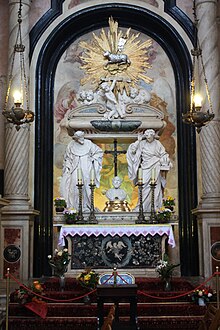Advent IV: Sunday
Gratiam tuam, quaesumus, Domine, mentibus nostris
infunde, ut qui, Angelo nuntiante, Christi Filii tui incarnationem cognovimus,
per passionem eius et crucem ad resurrectionis gloriam perducamur.
Pour, O Lord, your grace into our hearts, that we,
who have known the Incarnation of Christ
your Son by the message of an Angel, may by his Passion and Cross be brought into
the glory of his Resurrection.
Dec. 17
Deus, humanae conditor et redemptor naturae, qui
Verbum tuum in utero perpetuae virginitatis carnem assumere voluisti, respice
propitius ad preces nostras, ut Unigenitus tuus, nostra humanitate suscepta,
nos divino suo consortio sociare dignetur.
O God, Creator and Redeemer of human nature, who
willed that your Word should take flesh in an ever-virgin womb, look with favor
on our prayers, that your Only Begotten Son, having taken to himself our
humanity, may be pleased to grant us a share in his divinity.
Dec. 18
Concede, quaesumus, omnipotens Deus, ut, qui sub
peccati iugo ex vetusta servitute deprimimur, exspectata Unigeniti tui nova
nativitate liberemur.
Grant, we pray, almighty God, that we, who are
weighed down from of old by slavery beneath the yoke of sin, may be set free by
the newness of the long-awaited Nativity of your Only Begotten Son.
Dec. 19
Deus, qui splendorem gloriae tuae per sacrae
Virginis partum mundo dignatus es revelare, tribue, quaesumus, ut tantae
incarnationis mysterium et fidei integritate colamus, et devoto semper obsequio
frequentemus.
O God, who through the child-bearing of the holy
Virgin graciously revealed the radiance of your glory to the world, grant, we
pray, that we may venerate with integrity of faith the mystery of so wondrous
an Incarnation and always celebrate it with due reverence.
Dec. 20
Deus, aeterna maiestas, cuius ineffabile Verbum,
Angelo nuntiante, Virgo immaculata suscepit, et, domus divinitatis effecta,
Sancti Spiritus luce repletur, quaesumus, ut nos, eius exemplo, voluntati tuae
humiliter adhaerere valeamus.
O God, eternal majesty, whose ineffable Word the
immaculate Virgin received through the message of an Angel and so became the
dwelling-place of divinity, filled with the light of the Holy Spirit, grant, we
pray, that by her example we may in humility hold fast to your will.
Dec. 21
Preces populi tui, quaesumus, Domine, clementer
exaudi, ut, qui de Unigeniti tui in nostra carne adventu laetantur, cum venerit
in sua maiestate, aeternae vitae praemium consequantur.



